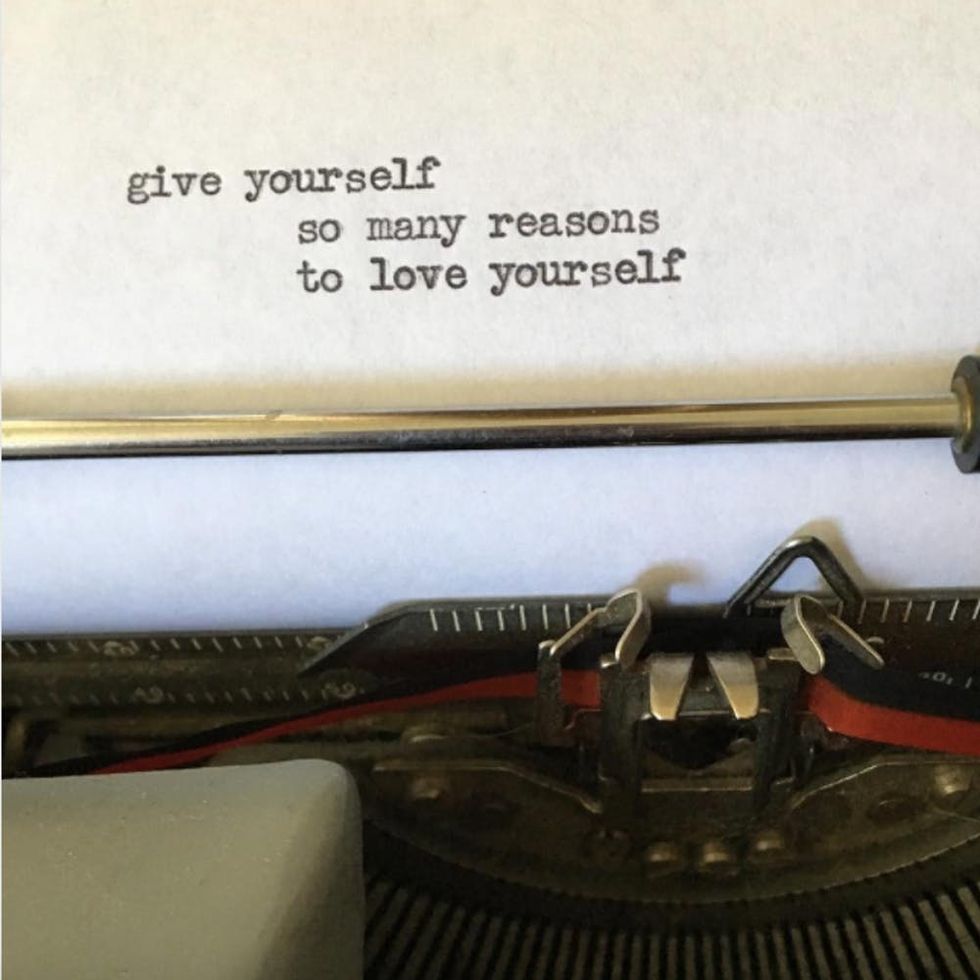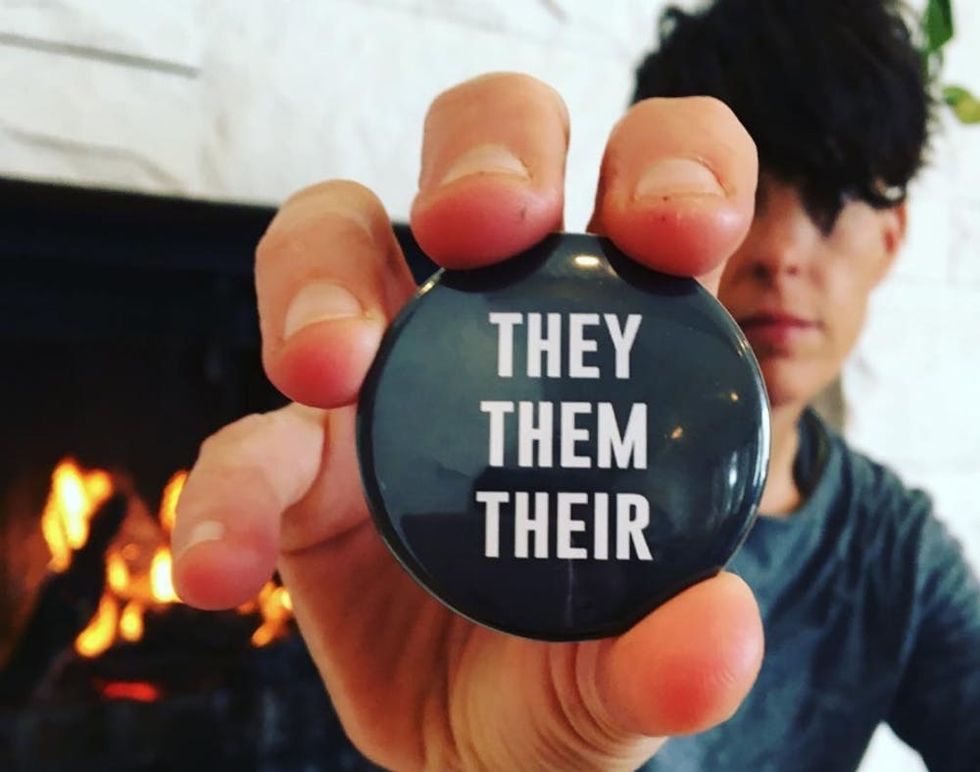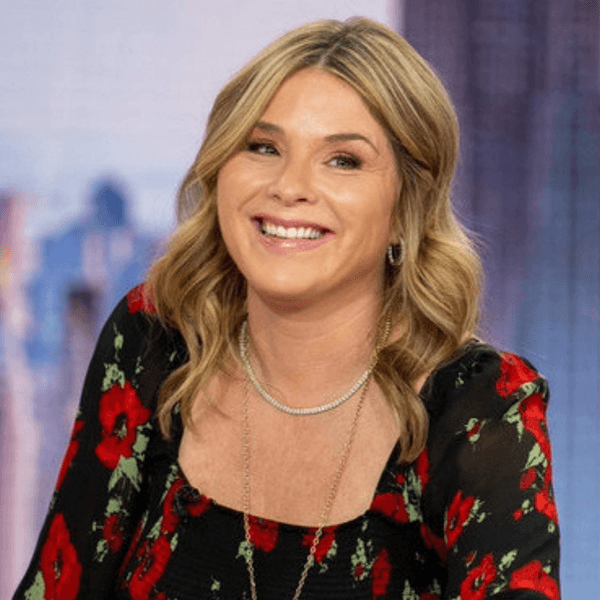Genderqueer Poet Andrea Gibson Uses Words to Send an Important Message: ‘You Belong’


Andrea Gibson is a writer with a mission. The poet and spoken word performer can be counted among the ranks of artists like Catherine Opie and Alison Bechdel as part of the movement to create a space for the LGBTQ+ community to be heard, accepted, and understood. Gibson has built a fanbase on YouTube by sharing artful performance videos that capture their experience as a genderqueer poet tackling political issues in a raw, unafraid way. Gibson’s most recent project, a collection of poems both new and old titled Take Me With You, was released on January 23 and the poet is currently on tour across the country sharing their powerful words. We spoke with Andrea about the impact art can have on individuals and across communities and how language has the ability to change minds.
B+C: You’ve said that writing has the power to help a writer know themselves better—like with your experience in discovering the word genderqueer. Do you think that comes from the power of language—the power that words themselves have, or from the process of sorting through your thoughts and organizing them onto paper?
Andrea Gibson: Leslie Feinberg said, “Gender is the poetry each of us makes with the language we’ve been given.” And I’d agree that the more language we have, and the more creatively we engage that language, the more we come to better understand our own being. But also, I uncover who I am and who I hope to become through the writing process itself. That is to say, in writing, I don’t set out to explain myself. I set out to know myself and the writing is the exploration. And to take it step further- often I am a different person after finishing a poem, because of the parts of myself I unearth in the process.
B+C: Does that power extend outside yourself? Has writing been important in helping you to explain yourself to other people?
AG: Yes, definitely. But the most important aspect of that, to me, is explaining myself so that I and others can find the places where our lives and stories connect. That is the magic—finding the familiar where you wouldn’t necessarily expect to. Finding connection where the links don’t appear to be readily there. The reminder that we are not alone in our experience is good medicine.
B+C: Do you view your art as a kind of activism, and if yes, can you talk about that a little bit—about how art is a medium for change or progress, and about what changes you hope to make through your own writing?
AG: I want to make art that inspires social change, while encouraging more insight and more collective compassion. I want the poems I write to reach the ears of people who need comforting, and to also reach the ears of folks who may need some waking up. While I think art is very often activism— as creating is the opposite of destruction— I am specifically interested in creating poetry for social justice, in writing directly on the topics that affect the political climate.
B+C: In Take Me With You you’re sharing a collection of your poems in print, but you also perform your poetry. What was it like doing that for the first time and how has the experience of sharing those deeply personal and emotional words with a crowd of people changed over the course of your career?
AG: The stage is an incredibly vulnerable place when sharing your own poetry. I have a rule to never perform a poem that I’m not really feeling, and to feel that much publicly is rattling—to say the least. The biggest change I’ve noticed in myself over the years is a heightened awareness of my audience and their feelings. It’s important to me that the people in the room feel welcome, seen, and celebrated. Each year that becomes increasingly more important to me so I work to create shows that create that kind of container.
View this post on Instagramgo always to where you will grow
A post shared by Andrea Gibson (@andrewgibby) on
B+C: What do you as an artist and an individual gain by sharing your ideas and experiences with gender, sexuality, love, and heartbreak with other people? Is it cathartic?
AG: Writing is very cathartic for me. I never feel more at peace than I do on a day I’ve spent hours writing. It’s the time I feel most at home in the universe. It’s the time I feel everything almost makes sense. And to be writing things that might affect some positive change—sometimes I can feel my past self hearing what I’m writing now and I can feel that past self being comforted by my words. As a teenager, I longed to find art that would tell me this world was a world that would welcome me. I’d like my body of work to be a welcome mat for someone someday. I’d like it to people, “This world is for you. You are wanted here.”
Has creativity helped you find a pathway to activism? Tell us about it on Twitter.
(Images via Andrea Gibson on Instagram)



















